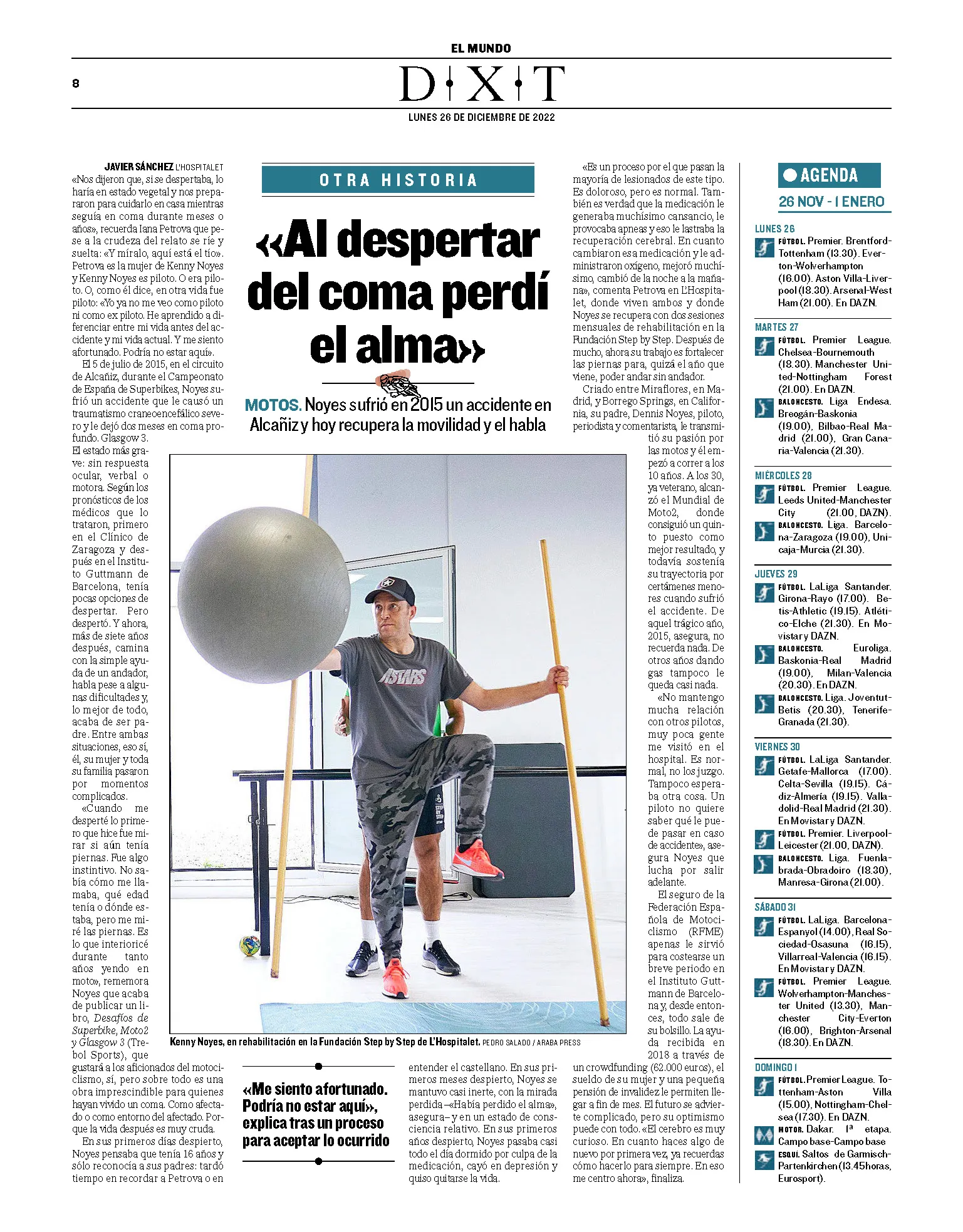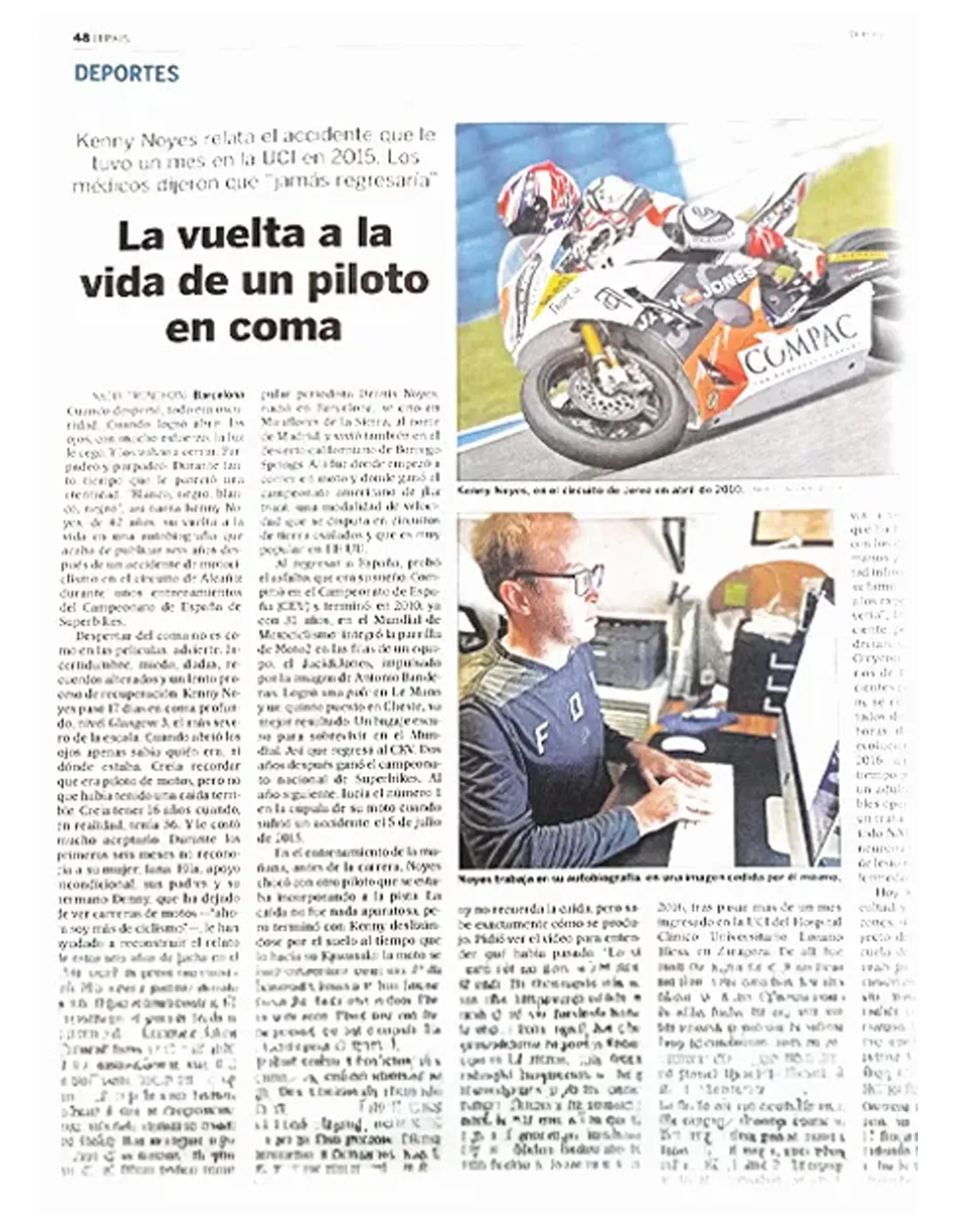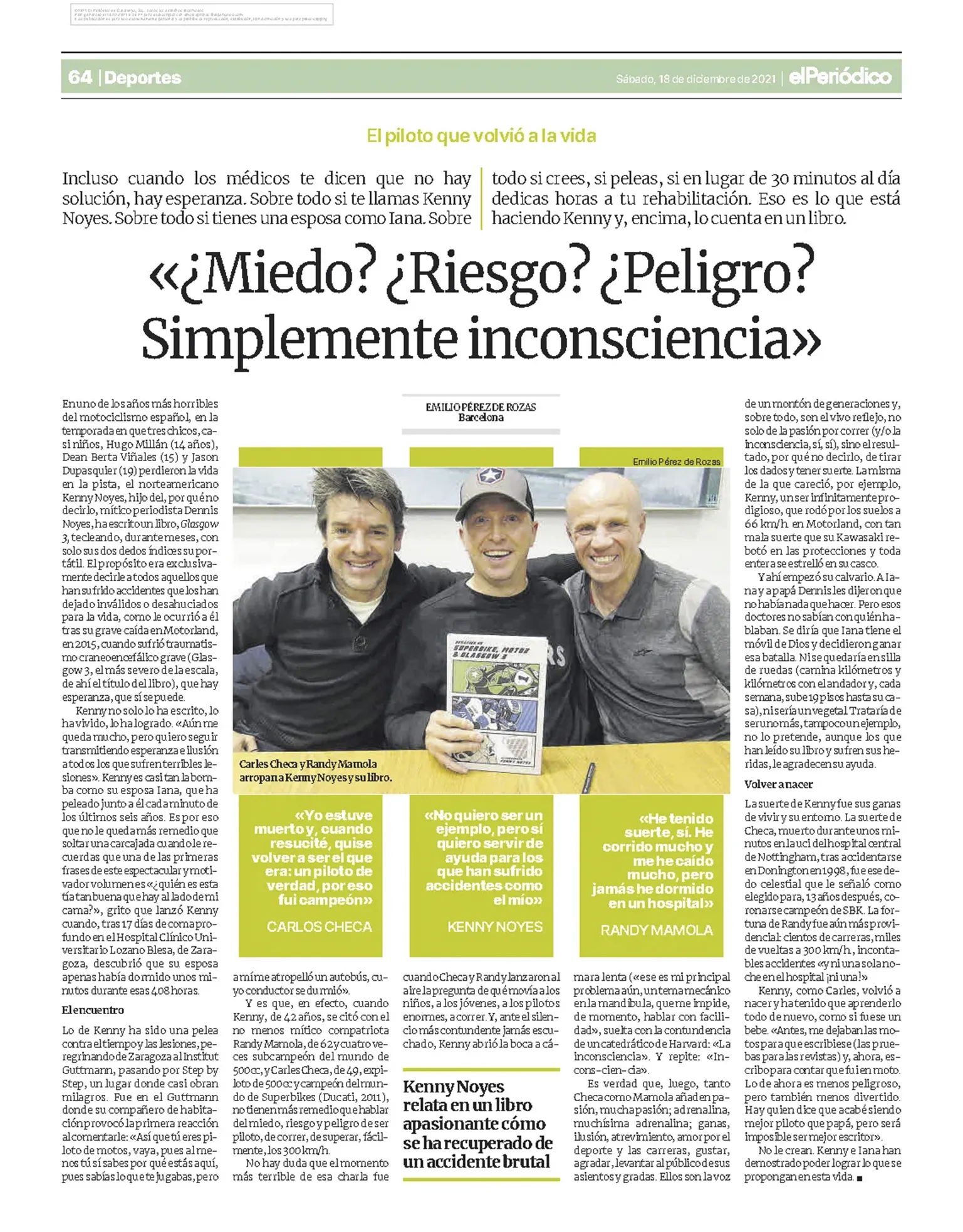“La vida es un desafío.
No te rindas.”
No te rindas.”
“La vida es un desafío. No te rindas.”
DESAFÍOS
Mi historia de recuperación no trata solo de desafiar los pronósticos médicos, sino de no rendirse nunca ante las limitaciones que nos imponen los demás. Quiero inspirar a otros para descubrir su fuerza interior y potenciarla al máximo. Por eso siempre me marco nuevos objetivos. ¿Mi próximo desafío? Completar la Media Maratón de Barcelona. ¿Y cuando lo consiga? Correr todas las grandes pruebas a nivel mundial.
carreras REALIZADAS:
Carrera solidaria "En Marxa" por la parálisis cerebral
5 km - tiempo 0:59:18 min
Se trata una prueba deportiva inclusiva, en la que las personas con pluridiscapacidad pueden participar sin limites de tiempo establecidos y con cualquier artilugio de movilidad, hasta los motorizados. Además, es una carrera solidaria a favor de las personas con parálisis cerebral. Completé esta prueba en dos ocasiones, en 2023 y en 2024, consiguiendo en la segunda, mi mejor resultado.
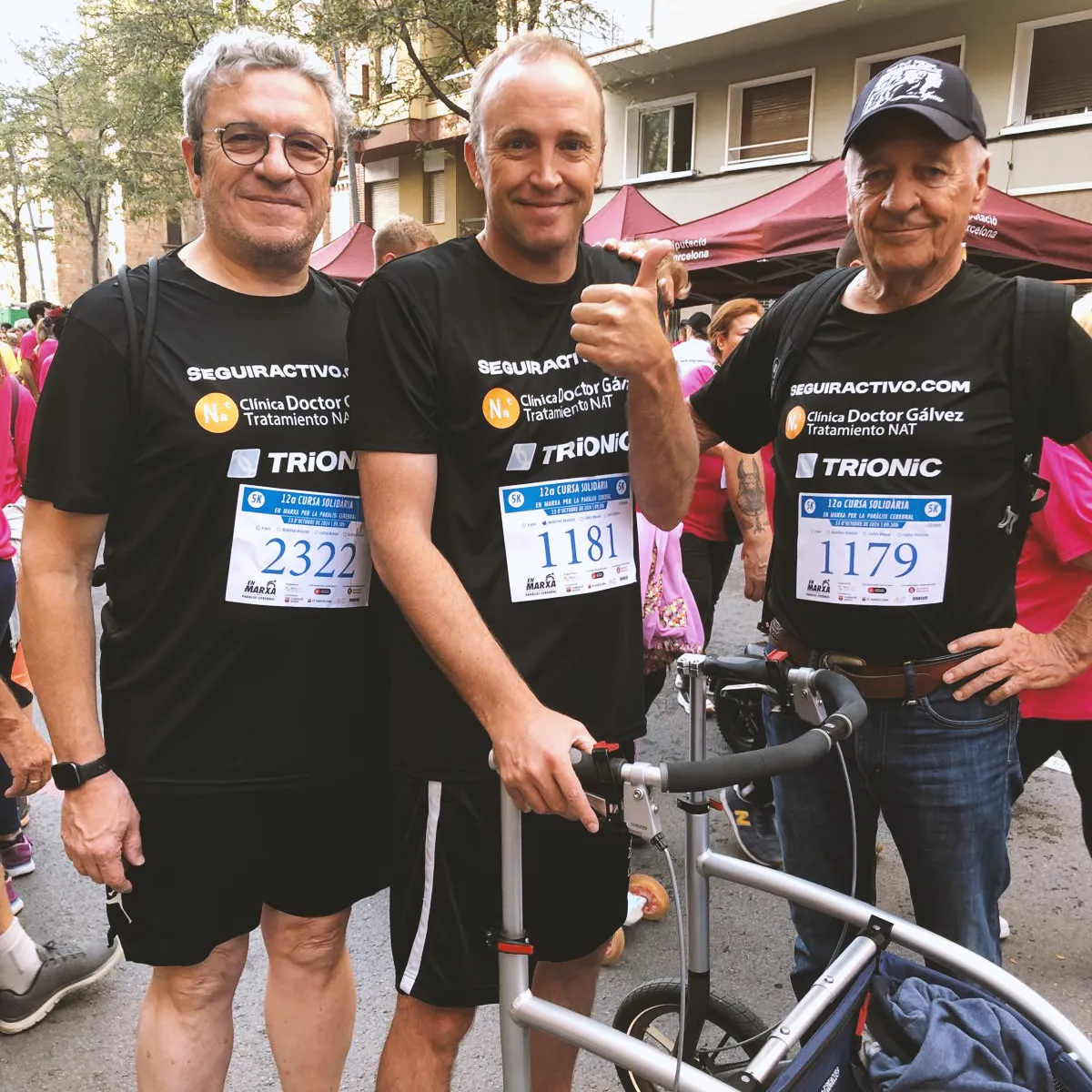
Jean Bouin Open
5 km - tiempo 0:54:10 min
Correr la Jean Bouin ha sido mucho más duro de lo que esperaba. Mi idea inicial era completar la de 10 km, pero apenas he llegado a la meta de 5 km, algo antes de los 59 minutos límite. Controlar el caminador con el desnivel de las calles ha sido uno de los mayores retos, y las piernas no han aguantado. Toca entrenar duro para entrar en el límite de 1:30 h de la carrera de 10 km. Pero tengo más ganas que nunca.
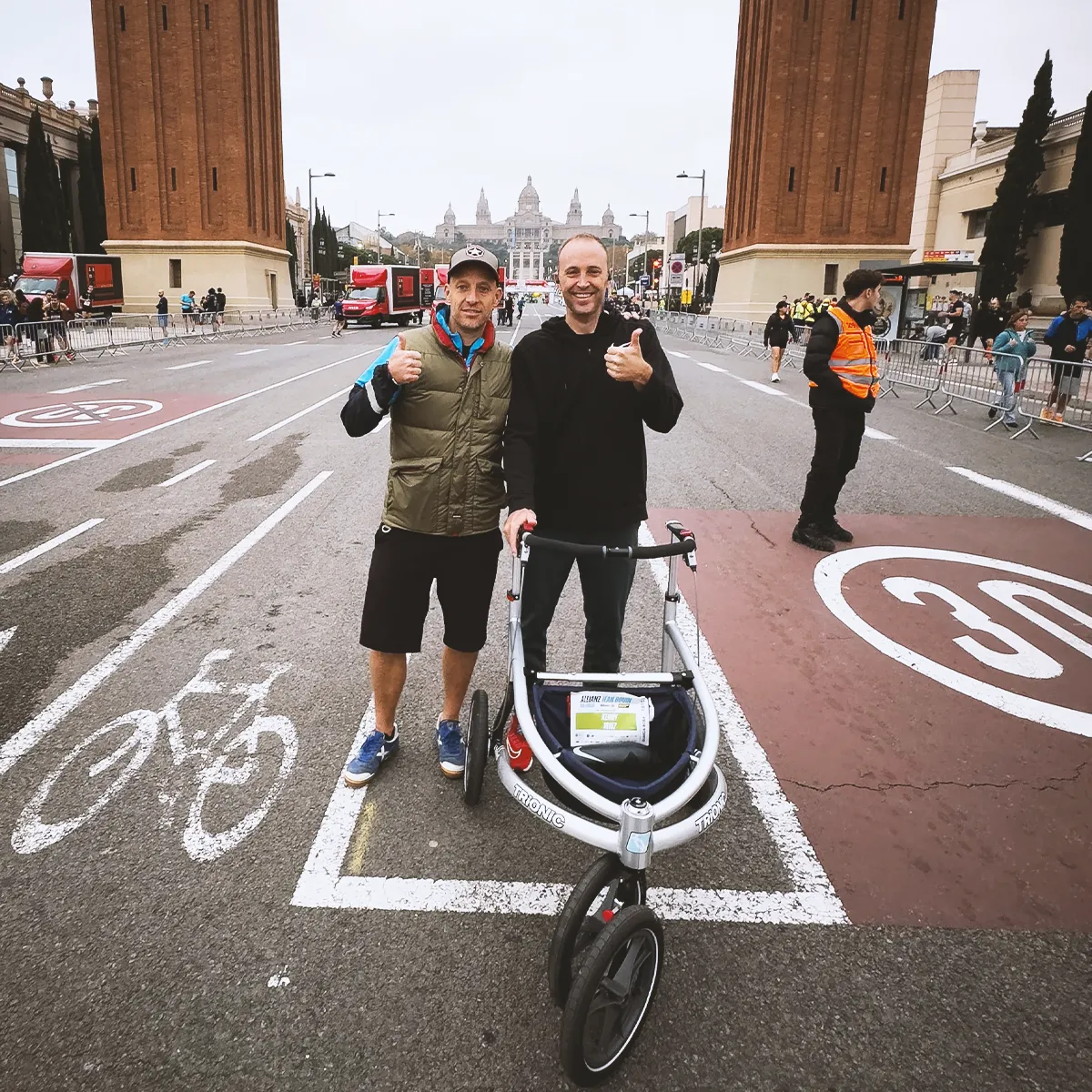
Media Maratón Barcelona 2025
21 km - completados 6 km
Arranqué con mejor ritmo que nunca, al menos en los dos primeros kilómetros, y poder recorrer las calles céntricas de Barcelona sin coches fue una experiencia única. Al final solo pude aguantar 6 km, mientras iban abriendo las calles detrás nuestro. Pero mi amigo Al, que vino desde Dubai para apoyarme, continuó hasta la meta y me entregó su medalla. Tenerla en mis manos me motiva aún más: quizá tarde más de lo que pensaba, pero algún día terminaré la media maratón de Barcelona.
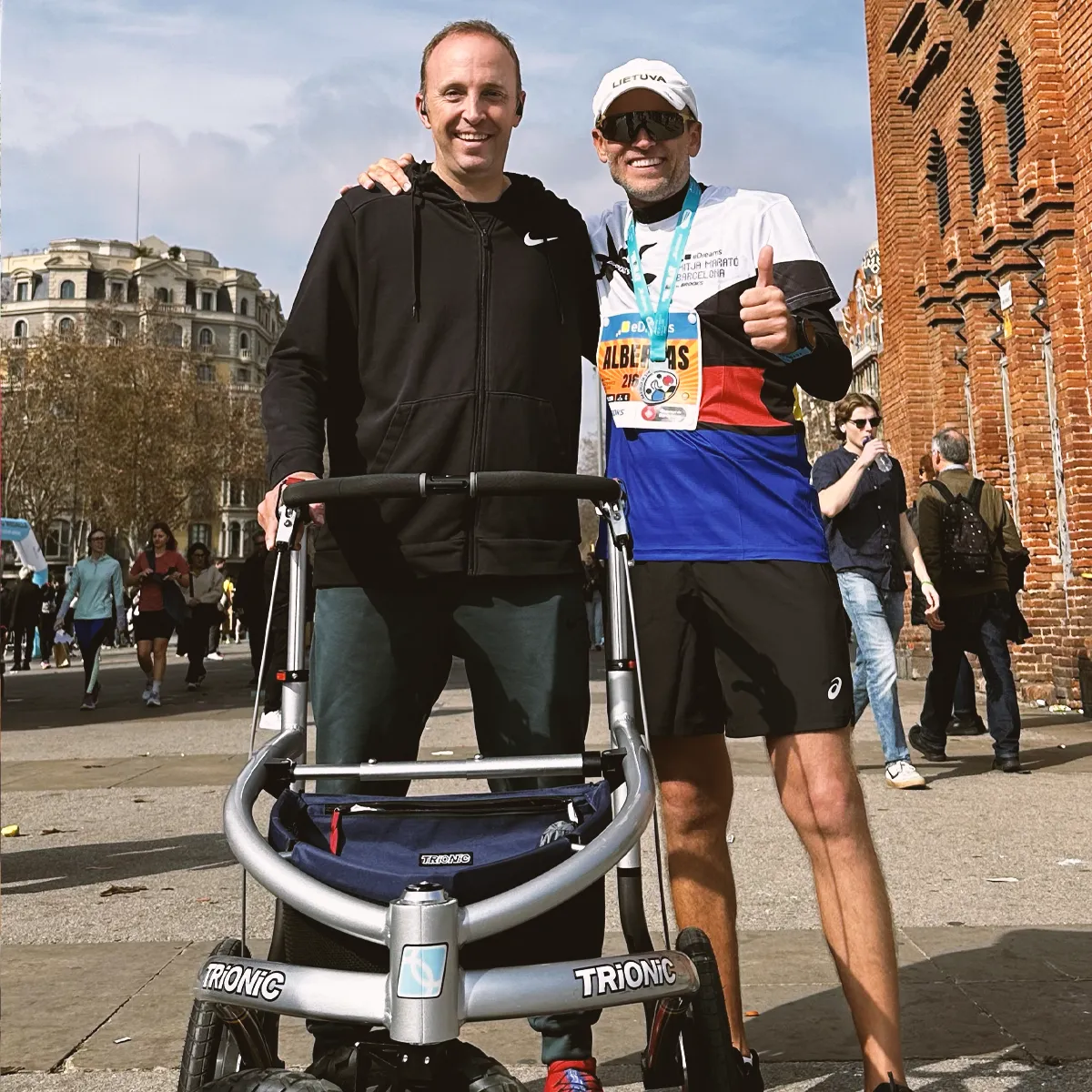
“Quiero inspirar a otros, para que no se rindan nunca ante los obstáculos.”
key topics:
1
The Three Phases of Successful Adaptation
The adaptation journey follows a predictable pattern: Disruption, Integration, and Stabilization. Understanding these phases helps us recognize where we are in the process and what to expect next. Each phase requires different approaches and mindsets. Research shows that people who understand these phases experience less stress during transitions and adapt more effectively. By recognizing these natural stages, we can better align our strategies with our current phase, making the entire process more manageable and successful.
2
Identifying Adaptation Patterns and Barriers
Each person has unique patterns in how they respond to change, shaped by past experiences and inherent tendencies. By recognizing these patterns, we can leverage our natural strengths while addressing potential blind spots that might hinder our adaptation process.
Understanding our personal barriers allows us to develop targeted strategies for overcoming them. This self-awareness becomes a powerful tool, helping us navigate changes more effectively and build confidence in our adaptive capabilities.
Understanding our personal barriers allows us to develop targeted strategies for overcoming them. This self-awareness becomes a powerful tool, helping us navigate changes more effectively and build confidence in our adaptive capabilities.
3
Developing Adaptive Resilience
Adaptive resilience isn't just about bouncing back – it's about developing the flexibility to thrive through change. Through specific exercises and daily practices, we can strengthen our capacity to handle transitions while maintaining our sense of purpose and direction. These techniques are designed to work with our brain's natural adaptation mechanisms, making them both effective and sustainable. Regular practice creates new neural pathways, making adaptation increasingly natural over time.
4
Maintaining Stability During Major Transitions
While change is constant, we can create islands of stability that support us through transitions. This involves identifying and maintaining key anchors in our lives while building new supportive routines that help us stay grounded. These methods focus on creating a balanced approach to change, allowing us to remain open to new experiences while maintaining our core sense of self. This balance is crucial for sustainable adaptation and long-term resilience.
5
Leading Others Through Change
Leading through change requires a unique set of skills that combines empathy with clear direction. Understanding how to guide others while managing our own adaptation process creates a powerful foundation for effective leadership during transitions.
These strategies help leaders create environments where team members feel supported while being challenged to grow. By fostering psychological safety and providing clear frameworks for adaptation, leaders can help their teams develop greater resilience and capability.
These strategies help leaders create environments where team members feel supported while being challenged to grow. By fostering psychological safety and providing clear frameworks for adaptation, leaders can help their teams develop greater resilience and capability.
PRENSA GENERALISTA
Selección de artículos y entrevistas publicados en periódicos de tirada nacional.
How much do the workshops cost?
Workshop pricing varies based on format and duration, with single-day sessions starting at $995 per person and two-day intensives from $1,895. Group and organizational rates are available, and early registration discounts may apply to select workshops.
What preparation is required?
Participants receive a brief pre-workshop assessment and reading materials one week before the session. This light preparation helps maximize our time together, but no extensive background knowledge is required—just bring your openness to learn and engage.
Can workshops be customized for my organization?
Yes, all workshop content can be tailored to address your organization's specific challenges and goals. We work closely with your team to understand your needs and adapt the frameworks, examples, and exercises accordingly.
What happens after the workshop?
Participants receive comprehensive follow-up materials, including implementation guides and access to our resource library. We also provide 30 days of email support and optional check-in sessions to help integrate learned techniques into daily practice.







